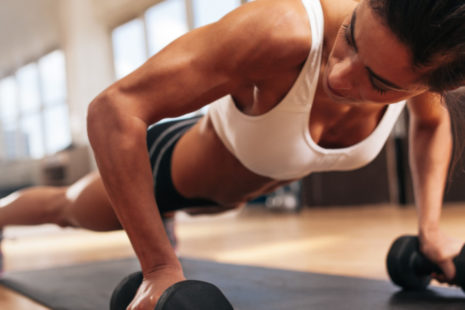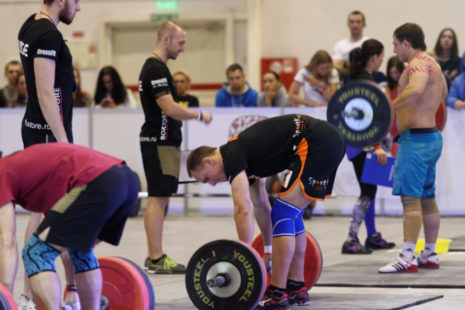Certain exercises can aggravate the injury and worsen your symptoms if you have a torn rotator cuff. Avoid exercises that strain the injured shoulder excessively and could cause further damage.
Here are some exercises you should usually avoid with a torn rotator cuff…
- Overhead Presses – Exercises like military presses, overhead dumbbell presses, or shoulder barbell presses put significant strain on the rotator cuff and should be avoided.
- Lateral Raises – Lifting weights or resistance bands in a lateral motion away from the body can stress the injured shoulder.
- Front Raises – Similar to lateral raises, lifting weights or resistance bands in front of the body can strain the torn rotator cuff.
- Upright Rows – This exercise involves lifting weights close to the body in an upward motion, which can stress the shoulder and rotator cuff.
- Bench Press – Standard bench pressing with a barbell or heavy weights can significantly strain the shoulders and should be avoided.
- Pull-Ups or Chin-Ups – These exercises involve supporting the entire body weight with the arms, which can be too much for a torn rotator cuff.
- Behind-the-Neck Movements – Exercises that involve lifting weights behind the neck, such as behind-the-neck press or lat pulldowns, can increase the risk of injury to the rotator cuff.
- Push-Ups – Standard push-ups put stress on the shoulders and may not be suitable for individuals with a torn rotator cuff. Modified push-up variations might be more manageable, such as wall push-ups or push-ups on the knees.
- Dips – Dips place significant pressure on the shoulders and should be avoided with a torn rotator cuff.
Work closely with a qualified physical therapist or healthcare provider to develop a safe and effective exercise program tailored to your specific condition and stage of recovery. They can guide you through appropriate rehabilitation exercises that improve shoulder stability, range of motion, and strength while avoiding further damage to the torn rotator cuff.
Remember that resting and allowing the injured rotator cuff to heal is crucial in the initial stages of recovery. Trying to push through pain or performing exercises exacerbating the injury can delay healing and prolong your recovery.




